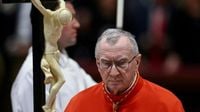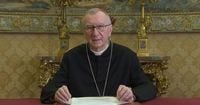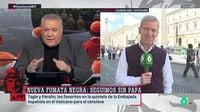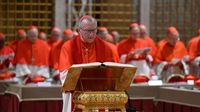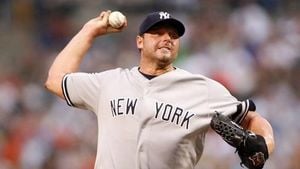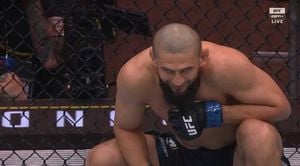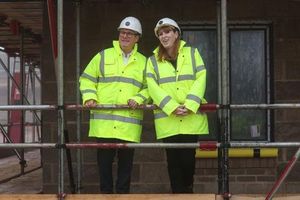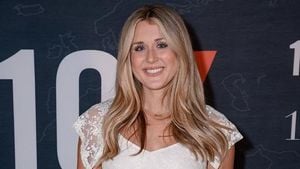As the Vatican prepares for a significant transition, Cardinal Pietro Parolin emerges as a leading candidate to succeed Pope Francis, who passed away on April 21, 2025. The conclave, which commenced on May 7, 2025, in the Sistine Chapel, saw 133 cardinals gather to elect the next pontiff. The anticipation culminated on the second day of deliberations when white smoke signaled that a new Pope had been chosen, indicating a majority vote of at least 89, although the identity of the new leader is still awaited.
Born on January 17, 1955, in Schiavon, Italy, Parolin has spent a lifetime preparing for this moment. He entered the seminary at age 14 and was ordained as a priest on April 27, 1980. His academic journey took him to the Pontifical Gregorian University, where he specialized in Canon Law, graduating in 1986. Parolin's diplomatic career began shortly thereafter, joining the Pontifical Ecclesiastical Academy at 28 and entering the Vatican's diplomatic service at 31.
Over the years, Parolin has held various significant roles, including working in Mexico from 1989 to 1992 to restore diplomatic relations between the Vatican and the Mexican government. His diplomatic acumen further shone when he was appointed apostolic nuncio in Venezuela in 2009, where he navigated complex political landscapes during Hugo Chávez's presidency.
In 2013, Parolin was appointed Secretary of State of the Vatican, a position he has held for over a decade, making him the second most powerful figure in the Church. His tenure has been marked by pivotal moments in international diplomacy, including playing a crucial role in the thawing of relations between the United States and Cuba in 2014, attending the signing of the peace agreement in Colombia in 2016, and leading efforts for the release of imprisoned bishops in Nicaragua in 2024. Most recently, he visited Lebanon to address escalating violence along the Israeli border and met with Ukrainian President Volodymyr Zelensky to discuss humanitarian aid amidst the ongoing conflict with Russia.
Despite his impressive credentials, Parolin's path to the papacy is not without challenges. Critics point to his lack of pastoral experience, arguing that his extensive diplomatic background may not align with the needs of the Church at this juncture. Some believe that Pope Francis may not have favored him as a successor, as evidenced by Parolin's absence from significant events during the Pope's final days.
Notably, Parolin has also been a key figure in the controversial agreement between the Vatican and China, which allows for the appointment of bishops in China while maintaining the Pope's ultimate authority. This agreement, while praised by some, has faced criticism from conservative factions within the Church, who view it as a capitulation to the Chinese Communist Party.
As the conclave progresses, Parolin's candidacy is under scrutiny. An anonymous cardinal noted that if he does not secure significant support in the early voting rounds, his chances may diminish in favor of other candidates. With the second day of voting underway, many observers are eager to see how the conclave will unfold.
Antonio García Ferreras, a prominent journalist, highlighted Parolin's geopolitical significance, particularly regarding relations with Asia. His previous roles, including efforts to improve ties with North Korea, Vietnam, and Israel, showcase his diplomatic prowess. However, Ferreras cautioned that entering the conclave as a favorite could prove a double-edged sword, as expectations may weigh heavily on Parolin.
In the context of his potential election, many cardinals are considering Parolin's moderate stance on doctrinal issues. While he has made traditional statements, such as calling the legalization of same-sex marriage in Ireland a "defeat for humanity," he has also shown openness to discussions about the priestly celibacy rule. His balanced approach may appeal to a diverse electorate within the conclave.
As the Church stands on the brink of a new era, the election of a new Pope could signify a return to Italian leadership for the first time since John Paul I in 1978. With Parolin's extensive background and established relationships within the Church and beyond, he represents a continuity of Francis's legacy but with a more traditional and diplomatic approach.
Ultimately, the conclave's decision will reflect not only the preferences of the cardinals but also the broader needs of the Catholic Church as it navigates a complex and often contentious global landscape. As the world awaits the announcement of the new Pope, the implications of this choice will resonate far beyond the Vatican.
